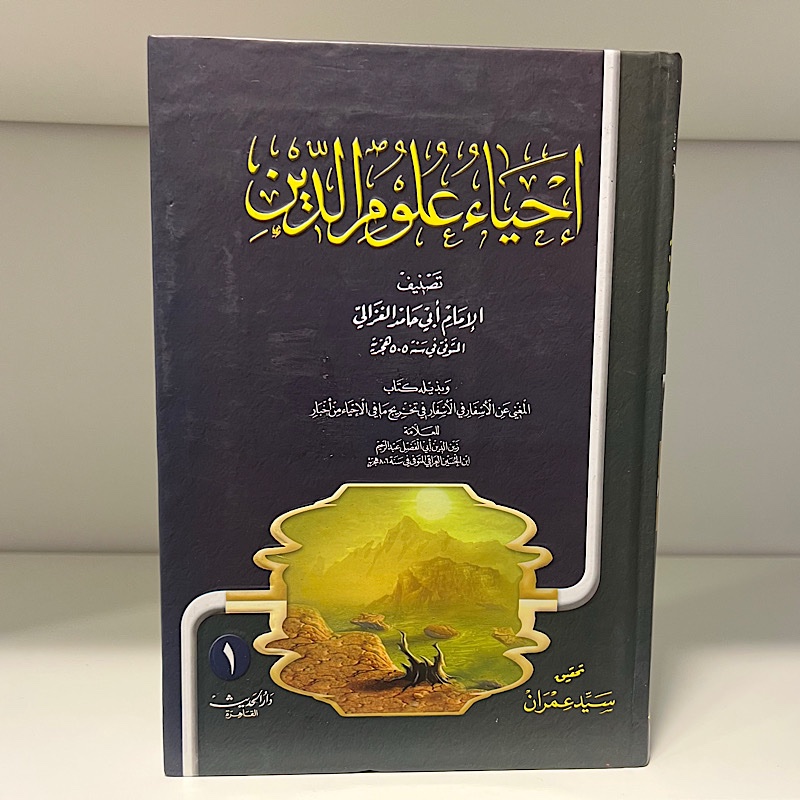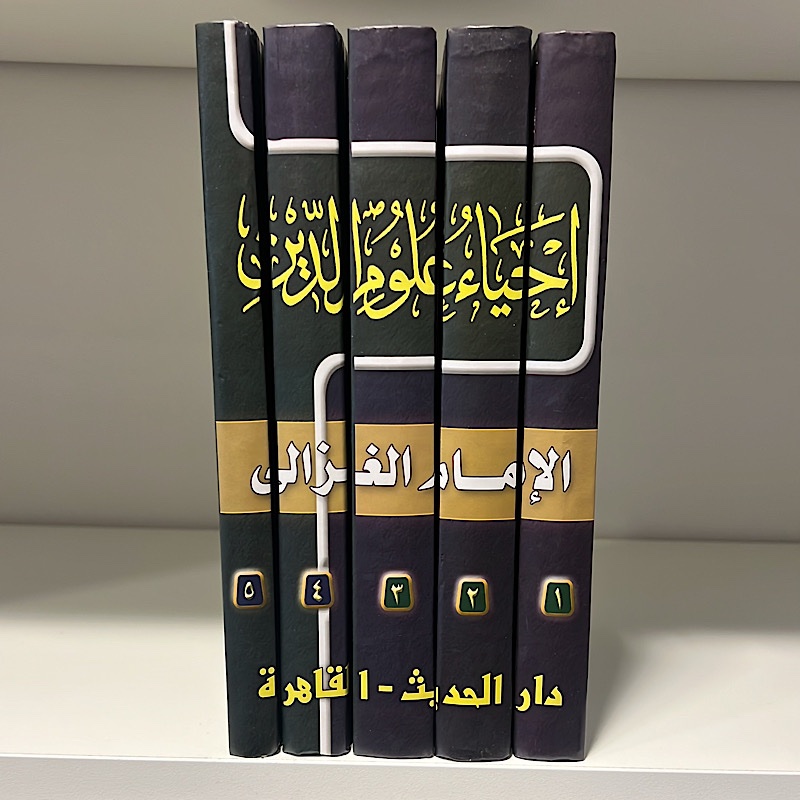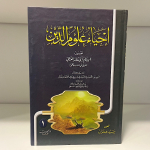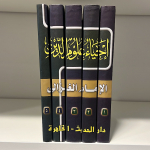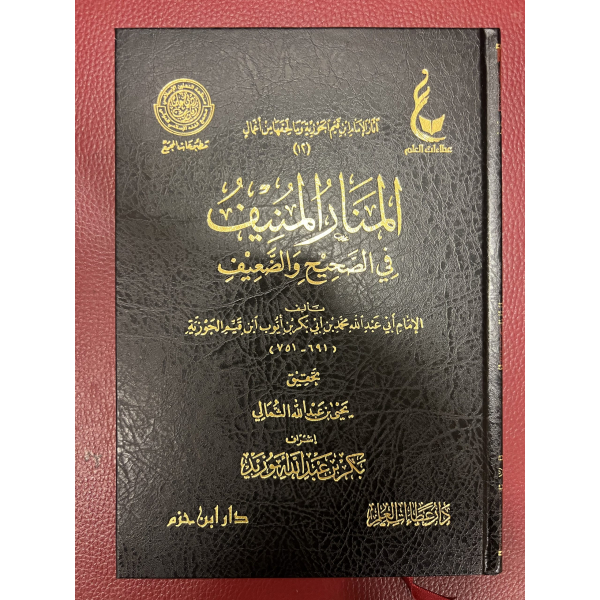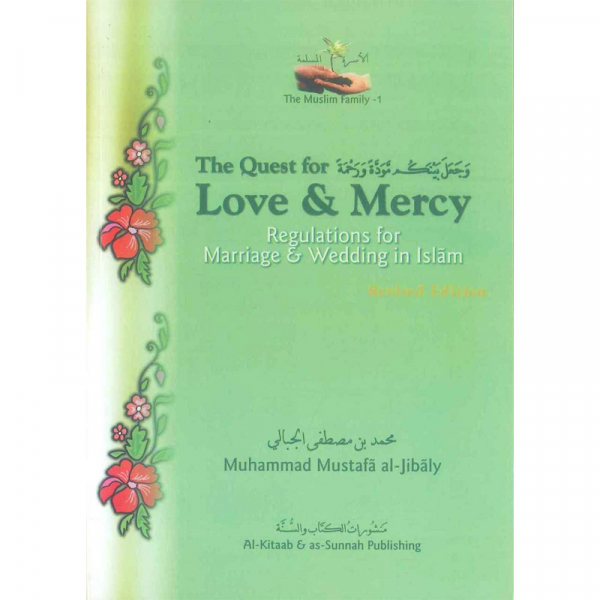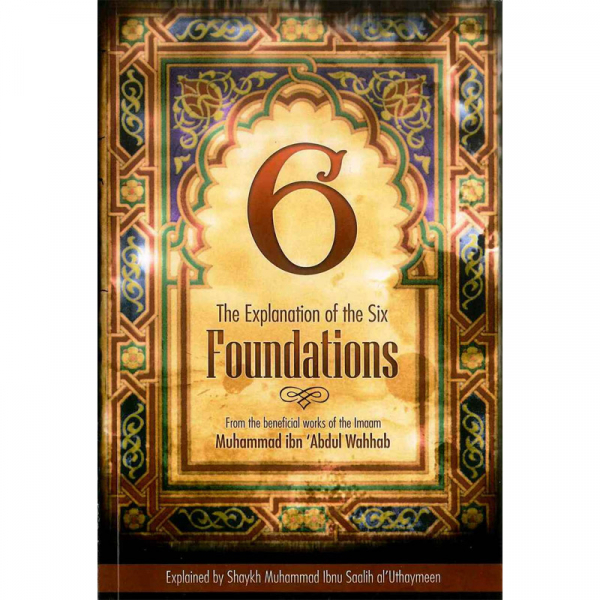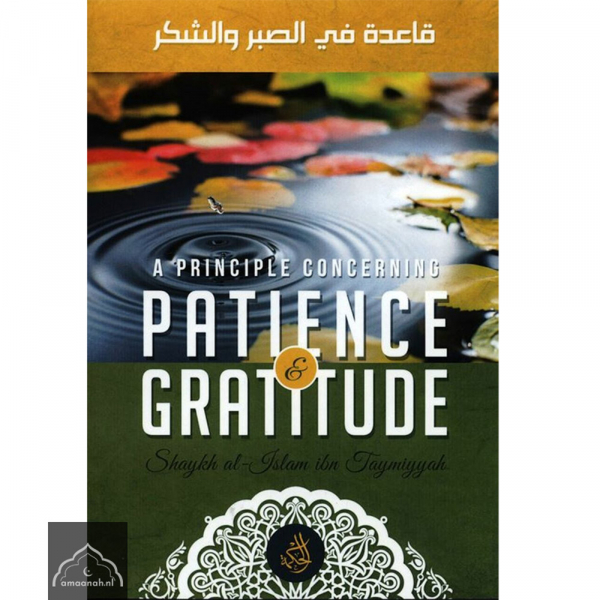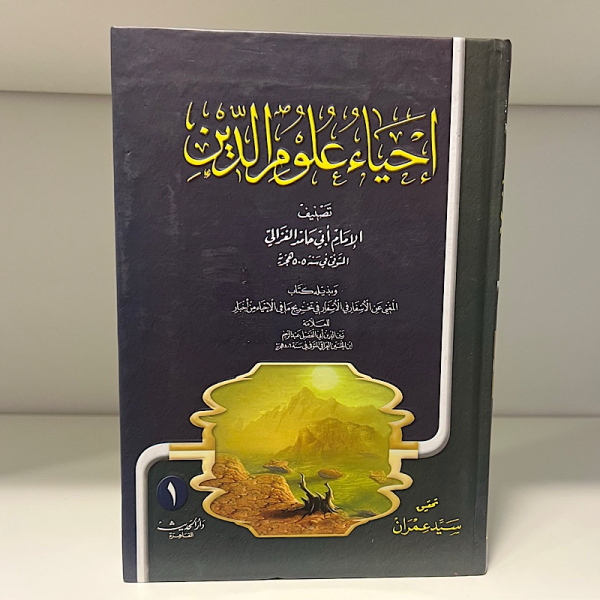Ihya Ulum Ad Din
Arabic Only
By Imam Abu Hamid Muhammad Al-Ghazali
Wa Bi Zaylihi Kitab al-Mughni An al-Asfar Fil Asfar Fi Takhriji Ma Fi al-Ihya Min Akhbar Lil Allamah Zainud Din Abul Fazl Abdul Rahim Ibn al-Husain al-Iraqi (D. 806 Hijri)
Tahqiq By Syed Imran
Hardback ~2257 Pages
5 Volumes Complete Set
ISBN: 6222007700064
Darul Hadith
About The Book
The Ihya Ulum al-Din is widely regarded as one of the great work of Muslim spirituality, and has, for centuries, been the widely read work in the Muslim world.
The masterpiece of Imam al-Ghazali, unquestionably one of the greatest thinkers and theologians of Islam.
Vol-1 deals with knowledge and the requirements of faith—ritual purity, prayer, charity, fasting, pilgrimage, recitation of the Qur’an, etc.
Vol-2 concentrates mostly on people and society—the manners relating to eating, marriage, earning a living, friendship, etc.
Vol-3 is dedicated to the inner life of the soul and discuss first the vices that people must overcome in themselves and then the virtues that they must strive to achieve.
Vol-4 is concerning to Turning to Allah in Repentance, Tawakkul, Muraqba wa Muhasba and Tawhid (Onenees of Allah) and Tawakkul.
Vol-5 is relating to the Death, Funeral, and those issues which are partaining to Aqaid like Jannah, Hell, Doomsday, Mizan and Hoor etc.
About The Author
Abu Hamid Muhammad, famous in the world of learning as Imam al-Ghazali was born in 450 AH (1058 A.D). in Persia.
He graduated from the Nizamia Madressa at Nishapur, with distinction.a very famous educational institution in Nishapur.
Later he was appointed as a teacher at the Nizamia College in Baghdad, where he proved very successful in imparting knowledge to the scholars under his care.
This valuable gift of sustaining interest of his pupils and passing on his knowledge to them made him so famous that students from all parts of the country flocked to study under him.
Imam al-Ghazali was fondly referred to as the ‘Hujjat-ul-lslam’, Proof of Islam, he is honoured as a scholar and a saint by learned men all over the world.
He is generally acclaimed as the most influential thinker of the Classical period of Islam, in his autobiography The Deliverance from Error, the Imam describes his education and his intellectual crisis, which left him so paralysed by doubt that he gave up his academic pursuits and worldly interests and became a wandering ascetic.
This was a process (period) of mystical transformation. Later, he resumed his teaching duties but again left these. An era of the solitary life, devoted to contemplation and writing then ensued, which led to the authorship of a number of everlasting books.

